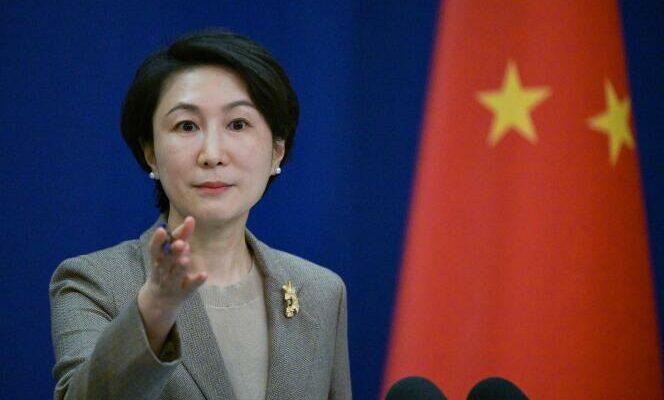China declared, Monday January 15, “firmly opposed” to any official exchange between the United States and Taiwan, hours after the island’s president-elect, Lai Ching-te (also known by his English name William Lai), welcomed an American delegation following his electoral victory. “China has always firmly opposed any form of official exchanges between the United States and Taiwan, and resolutely rejected any interference by the United States in Taiwan’s affairs in any manner or under any pretext. whether it be “Chinese Foreign Ministry spokesperson Mao Ning said at a press conference.
China considers Taiwan an integral part of its territory and aims for reunification, by force if necessary. Beijing does not maintain diplomatic relations with countries that formally recognize Taiwan as an independent state.
Washington presented the delegation sent to Taipei, capital of Taiwan, as unofficial, and part of normal protocol. This delegation is made up of former national security adviser Stephen Hadley, former deputy secretary of state, James Steinberg, and the president of the American Institute in Taiwan, Laura Rosenberger.
Taiwan accuses China of “diplomatic repression”
“We urge the United States to recognize the extreme complexity and sensitivity of the Taiwan issue, sincerely uphold the one-China principle (…) and to reaffirm previous statements by U.S. leaders that they do not support Taiwan independence”said M.me Mao. Washington should “respect its commitments regarding Taiwan, not seek to use the Taiwan question as a tool to contain China (…) and not send misleading signals to Taiwan separatist forces”she added.
Voters in Taiwan gave Lai Ching-te, the pro-independence leader of the ruling Democratic Progressive Party, a comfortable electoral victory on Saturday. The Chinese spokesperson said Monday that the vote was “a local matter relating to China”.
The Taiwanese authorities, for their part, accused China of “diplomatic repression” after the decision of the island of Nauru, a small Pacific nation, to break its ties with Taipei and now recognize Beijing. “While the whole world congratulates Taiwan on the success of the elections, Beijing has launched a diplomatic crackdown, which constitutes a response to democratic values and a blatant challenge to the stability of the international order”declared Olivia Lin, spokesperson for the Taiwanese presidency.
